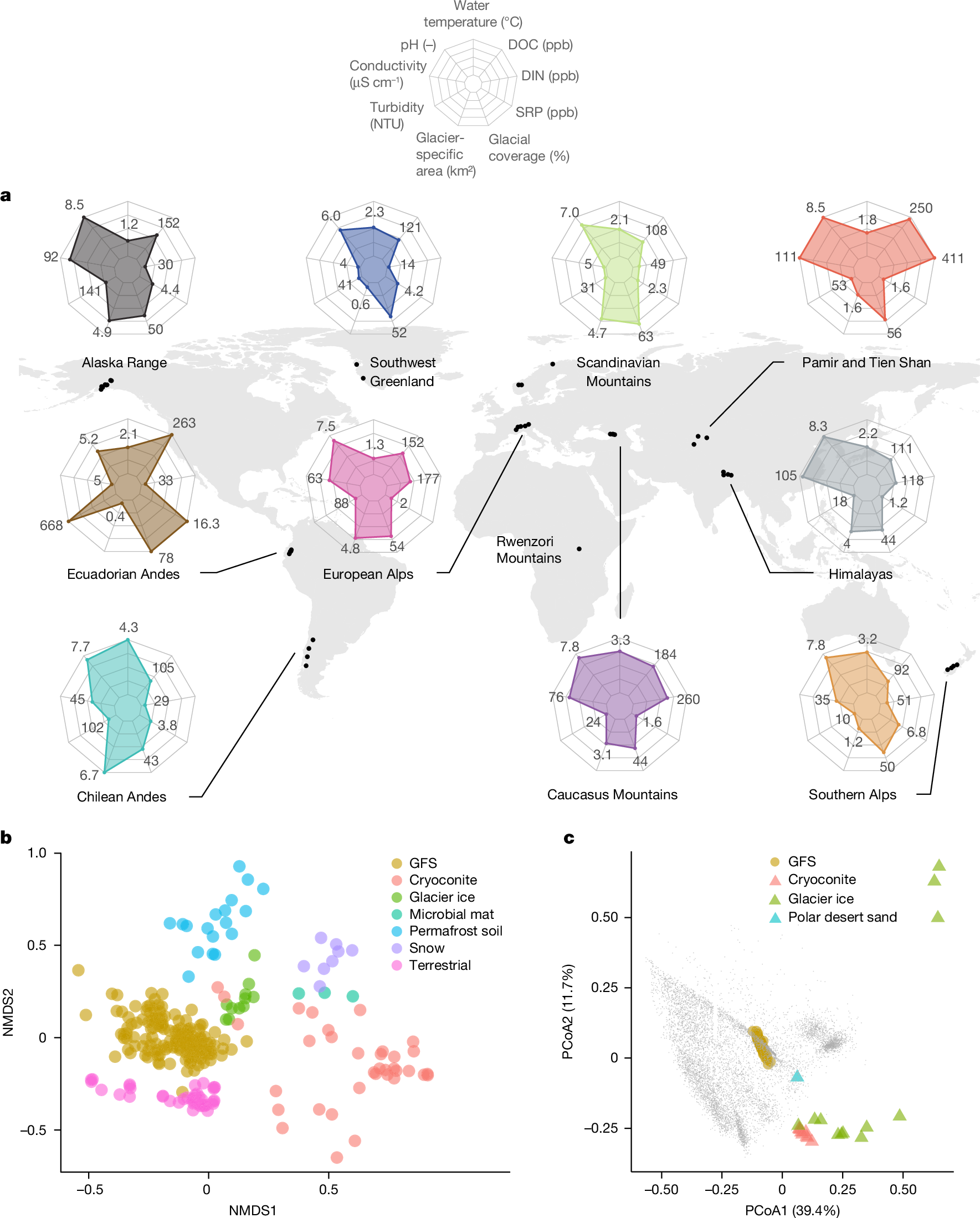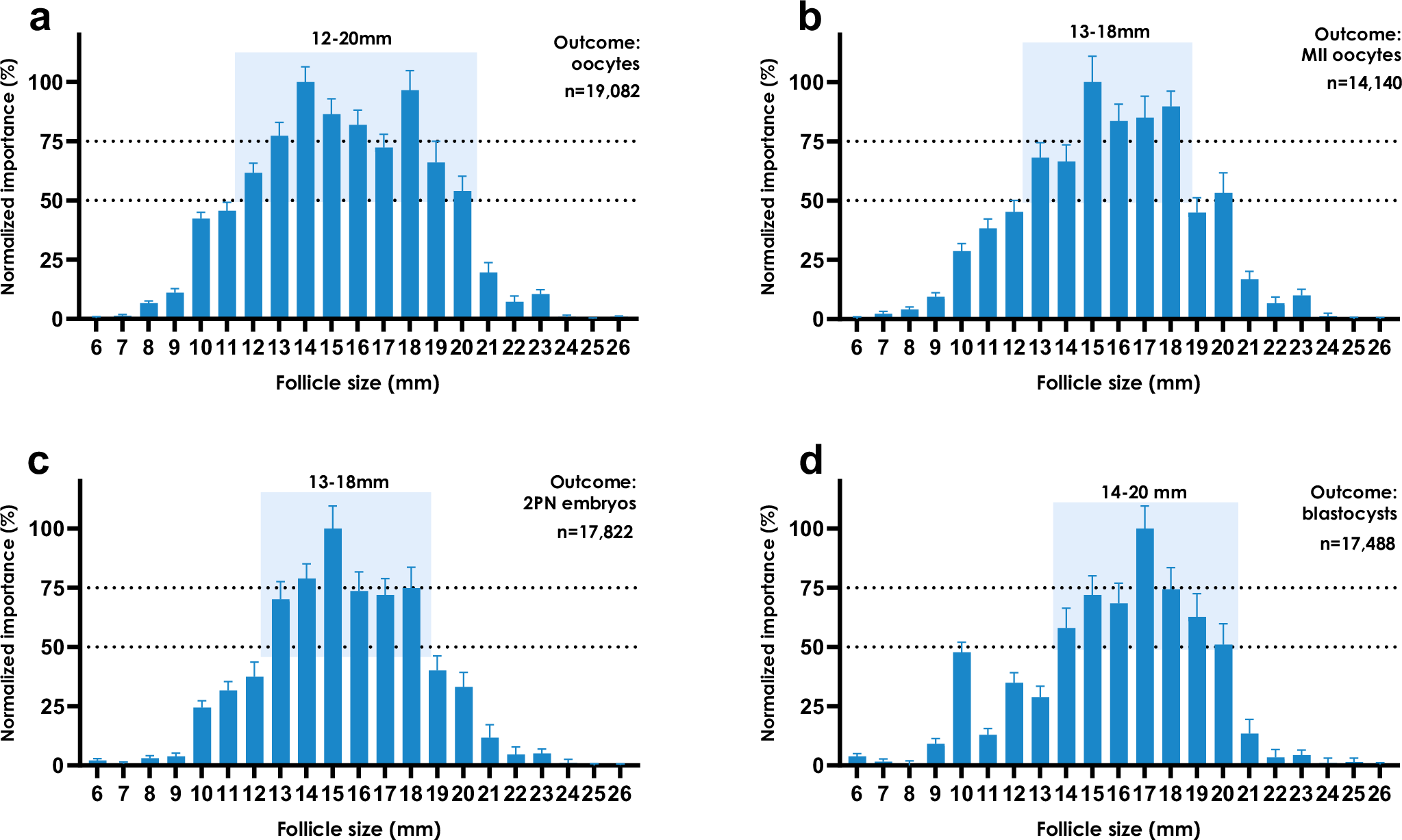2025-01-08 スイス連邦工科大学ローザンヌ校
<関連情報>
- https://actu.epfl.ch/news/scientists-discover-a-unique-microbiome-on-our-pla/
- https://www.nature.com/articles/s41586-024-08313-z
- https://www.nature.com/articles/s41564-024-01874-9
氷河が育む河川における細菌マイクロバイオームの多様性と生物地理学的特性 Diversity and biogeography of the bacterial microbiome in glacier-fed streams
Leïla Ezzat,Hannes Peter,Massimo Bourquin,Susheel Bhanu Busi,Grégoire Michoud,Stilianos Fodelianakis,Tyler J. Kohler,Thomas Lamy,Aileen Geers,Paraskevi Pramateftaki,Florian Baier,Ramona Marasco,Daniele Daffonchio,Nicola Deluigi,Paul Wilmes,Michail Styllas,Martina Schön,Matteo Tolosano,Vincent De Staercke & Tom J. Battin
Nature Published:01 January 2025
DOI:https://doi.org/10.1038/s41586-024-08313-z

Abstract
The rapid melting of mountain glaciers and the vanishing of their streams is emblematic of climate change1,2. Glacier-fed streams (GFSs) are cold, oligotrophic and unstable ecosystems in which life is dominated by microbial biofilms2,3. However, current knowledge on the GFS microbiome is scarce4,5, precluding an understanding of its response to glacier shrinkage. Here, by leveraging metabarcoding and metagenomics, we provide a comprehensive survey of bacteria in the benthic microbiome across 152 GFSs draining the Earth’s major mountain ranges. We find that the GFS bacterial microbiome is taxonomically and functionally distinct from other cryospheric microbiomes. GFS bacteria are diverse, with more than half being specific to a given mountain range, some unique to single GFSs and a few cosmopolitan and abundant. We show how geographic isolation and environmental selection shape their biogeography, which is characterized by distinct compositional patterns between mountain ranges and hemispheres. Phylogenetic analyses furthermore uncovered microdiverse clades resulting from environmental selection, probably promoting functional resilience and contributing to GFS bacterial biodiversity and biogeography. Climate-induced glacier shrinkage puts this unique microbiome at risk. Our study provides a global reference for future climate-change microbiology studies on the vanishing GFS ecosystem.
氷河渓流微生物群のメタゲノム多様性をマッピングする Mapping the metagenomic diversity of the multi-kingdom glacier-fed stream microbiome
Grégoire Michoud,Hannes Peter,Susheel Bhanu Busi,Massimo Bourquin,Tyler J. Kohler,Aileen Geers,Leila Ezzat,The Vanishing Glaciers Field Team &Tom J. Battin
Nature Microbiology Published:02 January 2025
DOI:https://doi.org/10.1038/s41564-024-01874-9

Abstract
Glacier-fed streams (GFS) feature among Earth’s most extreme aquatic ecosystems marked by pronounced oligotrophy and environmental fluctuations. Microorganisms mainly organize in biofilms within them, but how they cope with such conditions is unknown. Here, leveraging 156 metagenomes from the Vanishing Glaciers project obtained from sediment samples in GFS from 9 mountains ranges, we report thousands of metagenome-assembled genomes (MAGs) encompassing prokaryotes, algae, fungi and viruses, that shed light on biotic interactions within glacier-fed stream biofilms. A total of 2,855 bacterial MAGs were characterized by diverse strategies to exploit inorganic and organic energy sources, in part via functional redundancy and mixotrophy. We show that biofilms probably become more complex and switch from chemoautotrophy to heterotrophy as algal biomass increases in GFS owing to glacier shrinkage. Our MAG compendium sheds light on the success of microbial life in GFS and provides a resource for future research on a microbiome potentially impacted by climate change.

